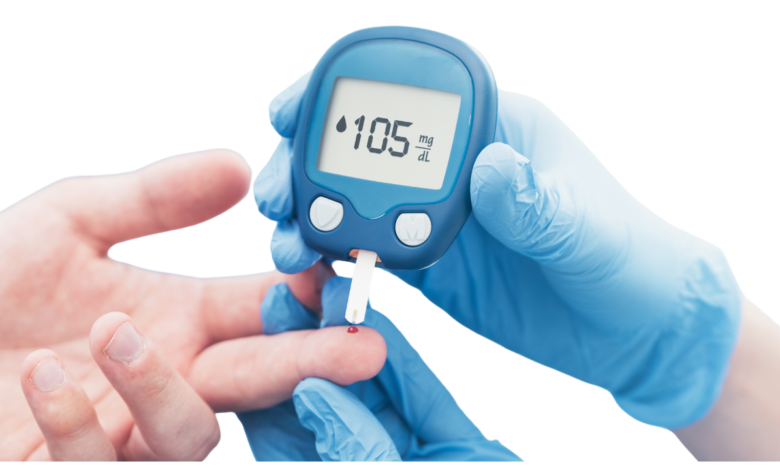Diabetes: A metabolic disorder affecting blood sugar levels.

What is the Diabetes ?
Diabetes is a chronic disease that affects how your body produces or uses insulin, a hormone that helps regulate blood sugar levels. There are two main types of diabetes:
- Type 1 Diabetes: This is an autoimmune disease where the body’s immune system attacks and destroys the insulin-producing cells in the pancreas.
- Type 2 Diabetes: This is a condition where the body becomes resistant to insulin or doesn’t produce enough insulin.
What are the symptom of Diabetes?
Symptoms of diabetes can vary, but common ones include:
- Frequent urination
- Increased thirst
- Extreme hunger
- Unexplained weight loss
- Fatigue
- Blurred vision
- Slow-healing sores
- Frequent infections
Who can suffer from Diabetes?
Anyone can develop diabetes, but certain factors increase your risk, including:
- Genetics: Having a family history of diabetes
- Obesity: Excess weight can contribute to insulin resistance
- Age: The risk of diabetes increases with age
- Lifestyle: Inactivity and a poor diet can increase your risk
- Ethnicity: Certain ethnic groups, such as African Americans, Hispanics, and Native Americans, have a higher risk
What are the type of Diabetes ?
As mentioned earlier, there are two main types of diabetes:
- Type 1 Diabetes: This is an autoimmune disease that usually develops in childhood or adolescence.
- Type 2 Diabetes: This is the most common type of diabetes and typically develops in adulthood.
Which diagnostic are available for the Diabetes ?
Several tests can be used to diagnose diabetes, including:
- A1C test: This measures your average blood sugar levels over the past three months.
- Fasting blood sugar test: This measures your blood sugar level after not eating or drinking for at least eight hours.
- Oral glucose tolerance test: This measures your blood sugar levels before and after drinking a sugary drink.
What are the treatment of the Diabetes ?
Diabetes management involves a combination of lifestyle changes, medications, and sometimes insulin therapy. Treatment plans vary depending on the type of diabetes and its severity.
- Lifestyle changes: This includes healthy eating, regular exercise, and weight management.
- Medications: Oral medications or insulin injections may be necessary to control blood sugar levels.
- Insulin therapy: This is often required for people with type 1 diabetes and may be needed for some people with type 2 diabetes
Which diet should I take ,if any ?
A healthy diet is essential for managing diabetes. It should focus on whole grains, fruits, vegetables, lean proteins, and healthy fats. It’s important to limit sugary drinks, processed foods, and excessive amounts of saturated and unhealthy fats.
Which speciality of the doctor will Diabetes?
A doctor specializing in diabetes is called an endocrinologist. They can provide comprehensive care and management for people with diabetes.
In Diabetes completely curable ?
Currently, there is no cure for diabetes. However, with proper management, individuals with diabetes can live long and healthy lives. The goal of treatment is to maintain blood sugar levels within a target range to prevent complications





